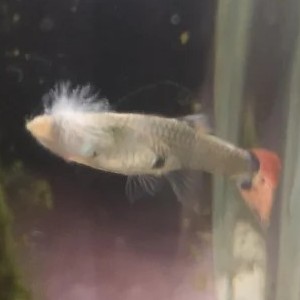
How to treat guppy fungus

One of the most prevalent illnesses that affects guppies is fungus, therefore it is important to keep an eye out for it. The guppy's whole body may be affected by this.
Guppy mouth fungus
Mouth fungus is a condition in which the mouth is compromised. Unfortunately, it may swiftly kill the guppies, therefore it must be treated with appropriately. Getting a thorough diagnosis of your guppy is the first step in treating him or her.
You'll see that the guppy's mouth isn't closing properly because of a faint white prominence at the corners. You may expect the fish's mouth to become spongy, which in turn will lead to the fish's death.
There are many moving creatures in this spongy white stuff, as you might see if you looked at it under a microscope. Aside from causing discomfort in the mouth, this tumor also consumes nearby tissue. It was previously thought that this fungus was preventing the guppy from eating, and it would starve to death as a result. That was previously thought to be the case, but it has now been proven that the absence of water flowing through the mouth and out of the gills is the real culprit. If your guppies are becoming sluggish and hanging close to the tank's surface, they may have a mouth fungus. Check them out right away to rule it out.
Crown fungus
There may be a little place on your guppy from which tiny threads appear to emanate up and forth. The guppy seems to have a little crown on its head. In this case, it's known as "Crown fungus," and it may grow up to an eighth of an inch in length before it's removed. This is another another sort of fungus that has to be dealt with as soon as possible.
Fin and tail fungus
If your guppy's fins or tail seem to be becoming grey or white, this may be a sign that they're having trouble swimming. When the guppies are housed at a temperature that is too low for them, this happens more often.
Fungus illnesses often only affect weak guppies, which may be caused by injury to the fish's skin or gills. Because of the persistent damage caused by the bacteria, they are now more vulnerable to the spread of fungus than they were before. Another important consideration is to avoid letting the water become too cold.
The Saprolegnia fungus is capable of killing fry even before any symptoms appear.
No matter what kind of fungus your guppy has, it must be treated right away with a medication that targets the particular fungus. To ensure that you obtain the correct medication, you need to be able to identify the fungus that your fish are infected with, and this can be done by visiting your local aquarium store.